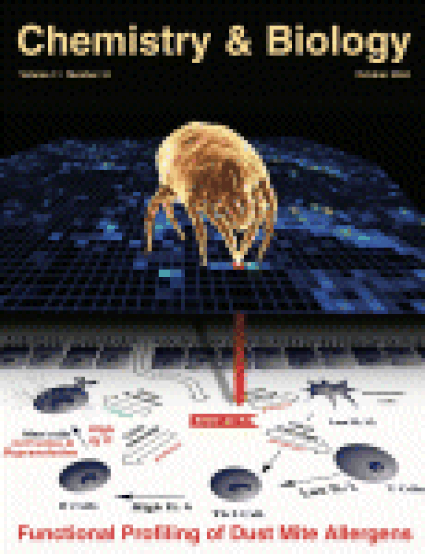
Article
Disruption of Protein-Membrane Binding and Identification of Small-Molecule Inhibitors of Coagulation Factor VII
Chemistry and Biology
(2004)
Abstract
Factor VIII is a critical member of the blood coagulation cascade. It binds to the membrane surfaces of activated platelets at the site of vascular injury via a highly specific interaction between factor VIII's carboxy-terminal C2 domain and their phosphatidylserine-rich lipid bilayer. We have identified small-molecule inhibitors of factor VIII's membrane binding activity that have IC50 values as low as 2.5 μM. This interaction is approximately 103-fold tighter than that of free o-phospho-L-serine. These compounds also inhibit factor VIII-dependent activation of factor X, indicating that disruption of membrane lipid binding leads to inhibition of the intrinsic coagulation pathway. The tightest binding inhibitor is specific and does not prevent membrane binding by the closely related coagulation factor V. These results indicate that this and related compounds may be used as leads to develop novel antithrombotic agents.
Disciplines
Publication Date
October, 2004
Publisher Statement
DOI:10.1016/j.chembiol.2004.08.006
Citation Information
P. Clint Spiegel. "Disruption of Protein-Membrane Binding and Identification of Small-Molecule Inhibitors of Coagulation Factor VII" Chemistry and Biology Vol. 11 Iss. 10 (2004) Available at: http://works.bepress.com/pc_spiegel/12/
